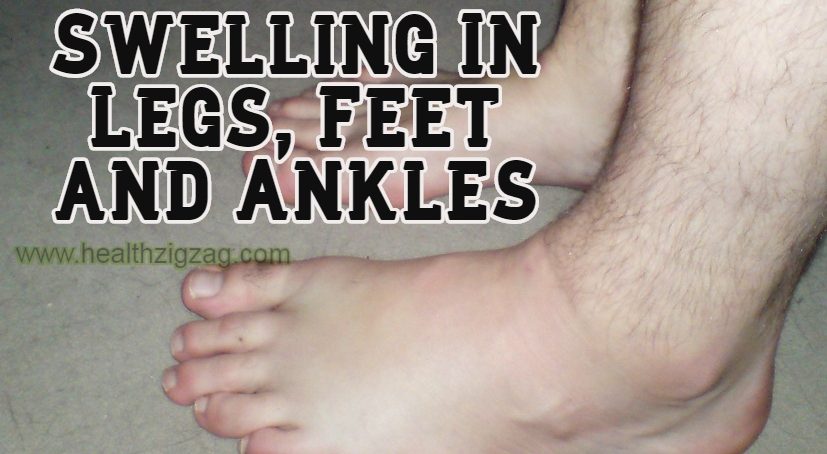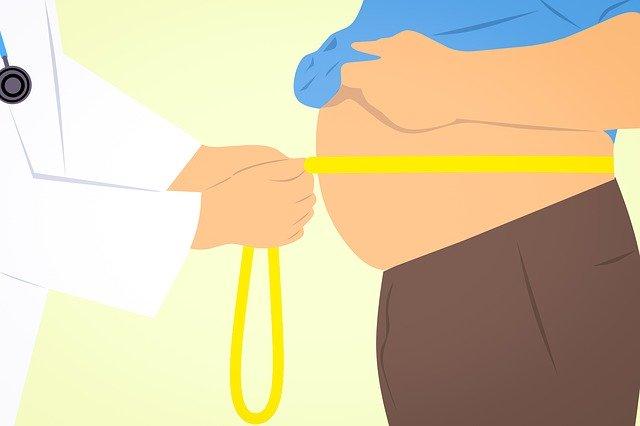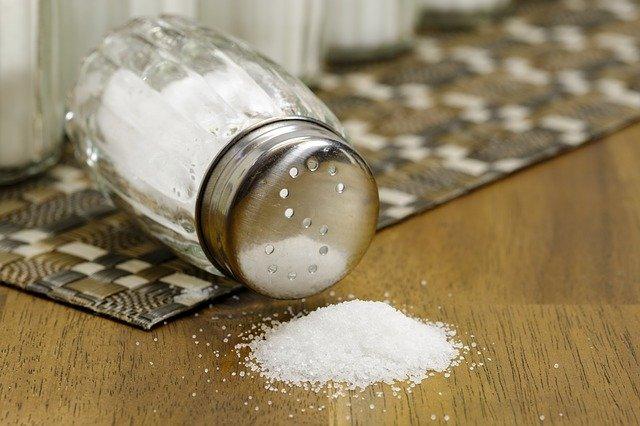
Swelling in legs is not a disease, it can be the result of an illness. The main reason for this is an increased fluid in the tissues, called edema.
Feet is the hardest organ of our body. They help us to walk, to run, to jump, to stand, and so on, all day long until we wake up in the morning until we sleep.
With 26 bones and more than a hundred muscles, feet and ankles work together as a team to help us become part of every kind of activity.
However, if the foot is swollen for no reason, what can be the cause?
By the way, standing too much can cause swelling, but sometimes it can be a sign of serious diseases.
Symptoms that can be associated with legs, feet and ankles swelling
- Ulceration of breath
- Ulceration of the skin
- Rash
- Itching
- Redness
- Numbness
- Leg pain
Common causes of swelling in the legs, feet, and ankles
Swelling In Legs, Feet, and Ankles During Pregnancy Can Be A Major Issue Sometimes
Swelling of the feet during pregnancy is not an issue, but sudden and excessive swelling indicates a complication in pregnancy. It may also mean that the amount of protein in the urine is increased or the blood pressure is not in balance.
- Read Also: Low blood pressure in pregnancy
High Blood Pressure Also Can Cause Swollen Legs

According to the American Heart Association, one in every three in the United States is suffering from blood pressure. Many factors in the body together cause blood pressure to rise. Excess salt intake in the diet increases blood pressure. According to research, obese and kidney diseases are more common in older people in Africa and the United States due to over salt consumption. Patients with heart artery problems are more likely to have blood pressure. Persistent blood pressure causes swelling in the legs.
Kidney Disease and Swelling In Legs and Feet
Kidney failure is often the cause of swelling in the legs. The kidneys act as a filter plant for our bodies. These are the vital organs that excrete waste substances from our body through the urine.
Kidney stones have become a common disease nowadays caused by excessive use of oxalate, calcium, and phosphate in food. If the stone is not removed, then it causes severe swelling of the legs with severe pain in the kidneys and back.
- Read Also: Foods To Avoid With Kidney Disease
Liver disorders and Swollen Legs Problem
Liver failure begins with a fever. Later, the fever subsides, but the liver disease remains in place. Chronic fever, staying in a hot place, eating more sweets, drinking more alcohol cause liver disease. When the liver does not function properly, the swelling of the legs occurs and anemia also occurs as well.
- Read Also: Natural Substitute For Antibiotics
Obesity Causes Heart Problems, Joint Pain and Swelling in Legs

Obesity comes from being high in body fat. And this causes heart problems, joint pain, and swelling in the legs. Which makes it difficult to walk.
- Read Also: Why is obesity caused by stress?
Legs, feet, and ankles swelling is a common thing in diabetes

It is common to have foot swelling in this disease. Diabetes patients are advised to take special care of their feet. Due to blood vessels affecting the blood, the body does not reach the feet which cause swelling on them.
Congestive heart failure and swollen legs
Staying steady on the feet indicates heart problems. Immediately check with a physician if you feel a pressure in the chest with foot swelling.
- Read Also: Brain tumor symptoms and causes
Wearing tight shoes can cause of swollen legs
Feet are a very important part of our body as they carry the whole body load. The swelling of the feet is often due to wearing tight shoes. Tight shoes affect the blood flow to the feet, so wear shoes that have no problem with walking. Also, tight shoes deform the foot structure.
Sprains in the toe or ankle
Sometimes an injury to the foot causes swelling, but some people do not take the swelling seriously and say that it will heal itself. But swelling of the feet should not be discouraged and in such a situation one should first refrain from walking and should not over-emphasize if it is necessary to walk. Also, apply ice on the swollen area.
- Read Also: 5 Tips For Instant Migraine Relief
Infection can be a cause of swelling legs
Swelling in the feet is not only due to injury but also due to infection. People who are diabetic or have a neurological disease, their feet become inflamed due to infection. And if the patient feels swollen legs without any reason, consult your doctor immediately.
Sitting or standing for longer can cause swelling legs, feet, and ankles
People who spend most of the day sitting or working all the time (such as doctors and nurses at the hospital, etc.) will often feel at the end of the day that their shoes are tight. This is because standing or sitting for too long can affect the blood flow to the legs and cause swelling in the legs. Therefore, your body should move for a short period so that the feet do not swell.
- Read Also: 10 Ways To Detox Your Body Naturally
Treatment for Swelling In Legs, Feet, and Ankles
Reduce salt intake in your daily routine diet

Items with a high salt or sodium cause dehydration in the body. Which causes swelling throughout the body with the legs. Do not take more than 2300 mg of sodium throughout the day and avoid foods containing high salt content.
- Read Also: Harmful Effects of Soft Drinks on Human Body
Exercise and swimming are the best ways to get rid of swelling legs
If you have inflammation in the legs, ankles, or feet, do a lightweight exercise as well as do more swimming. This way your body will have better blood circulation and you will get rid of swelling legs, feet, or ankles problem sooner.
- Read Also: Types of Carbonated Drinks
Keep your feet up
Lay your feet on the ground for 30 minutes at least three times a day and keep your body elevated. In this way, the toxins in the blood will not reach the legs and the inflammation will decrease. You will get rid of swelling legs, feet, or ankles problem sooner.
Take a little walk and this will keep you away from swelling legs problem
If your job is to sit and work all the time, change your habits and get up and walk around at least three times a day for 10 minutes.
Avoid smoking
If you have inflammation in your foot and you also smoke, get rid of this habit immediately. Within a few days, you will realize that you have taken the right course.
- Read Also: 13 Clinical Apple Cider Vinegar Benefits
Use more water

You should use more water, it will not only dehydrate your body but also irregular substances in the blood and urine will come out.
Magnesium Supplements
One of the causes of inflammation on the feet and ankles is the lack of magnesium in the body. Take 350 mg of magnesium intake a day after consulting your doctor. You will get rid of swelling legs, feet, or ankles problem sooner.
This post is sponsored by kidsrush.com.




